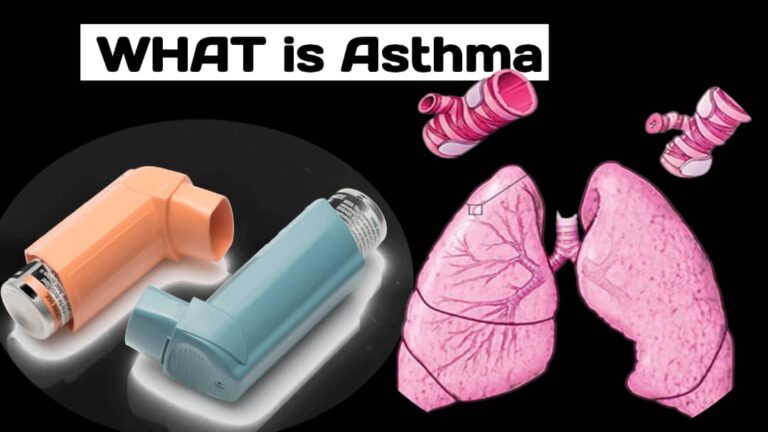THYROID DISEASE

Thyroid disease refers to a group of medical conditions that affect the thyroid gland, a butterfly-shaped gland located in the front of the neck. The thyroid gland produces hormones that regulate various bodily functions, including metabolism, growth, and development. There are several types of thyroid disease, including:
Hypothyroidism: In hypothyroidism, the thyroid gland does not produce enough thyroid hormones. This can result in various symptoms, including fatigue, weight gain, cold intolerance, dry skin, constipation, depression, and muscle weakness. The most common cause of hypothyroidism is an autoimmune condition called Hashimoto’s thyroiditis, where the immune system mistakenly attacks the thyroid gland.
Hyperthyroidism: Hyperthyroidism occurs when the thyroid gland produces an excess of thyroid hormones. Symptoms may include weight loss, increased appetite, rapid heartbeat, anxiety, irritability, tremors, heat intolerance, and sweating. The most common cause of hyperthyroidism is an autoimmune disorder called Graves’ disease, which causes the immune system to stimulate the thyroid gland to produce excessive hormones.
Thyroid nodules: Thyroid nodules are abnormal growths or lumps that form within the thyroid gland. Most nodules are benign (non-cancerous), but some can be cancerous. Thyroid nodules may not cause symptoms, but larger nodules can cause swelling or discomfort in the neck. Evaluation of nodules often involves imaging tests, such as ultrasound, and sometimes a biopsy to determine if they are cancerous.
Thyroid cancer: Thyroid cancer occurs when abnormal cells in the thyroid gland grow and multiply uncontrollably. It is relatively rare but can occur in individuals of any age. Common types of thyroid cancer include papillary carcinoma, follicular carcinoma, medullary thyroid carcinoma, and anaplastic carcinoma. Treatment typically involves surgery to remove the cancerous tissue, followed by radioactive iodine therapy or other treatments, depending on the specific type and stage of the cancer.
Thyroiditis: Thyroiditis refers to inflammation of the thyroid gland. It can be caused by viral or bacterial infections, autoimmune conditions, or certain medications. Depending on the type of thyroiditis, it can lead to temporary hyperthyroidism followed by hypothyroidism or permanent damage to the thyroid gland.
Diagnosis and Treatment:
Diagnosing thyroid disease involves a combination of medical history, physical examination, blood tests to measure hormone levels, imaging tests (such as ultrasound or nuclear scans), and, in some cases, a thyroid biopsy.
Treatment for thyroid disease depends on the specific condition and its underlying cause. It may include:
Medications: Synthetic thyroid hormones (such as levothyroxine) are commonly prescribed to replace deficient thyroid hormones in hypothyroidism. Anti-thyroid medications (such as methimazole or propylthiouracil) may be used to reduce the production of thyroid hormones in hyperthyroidism.
Radioactive iodine therapy: This treatment involves the administration of radioactive iodine, which selectively destroys thyroid cells, particularly in cases of hyperthyroidism or thyroid cancer.
Surgery: Surgical removal of all or part of the thyroid gland (thyroidectomy) may be necessary in certain cases, such as thyroid cancer or large nodules.
Management of symptoms: In addition to specific treatments, symptoms associated with thyroid disease can be managed with lifestyle modifications, such as dietary changes, stress reduction techniques, and regular exercise.
If you suspect you have a thyroid condition or have concerns about your thyroid health, it is important to consult with a healthcare professional for a proper evaluation, diagnosis, and appropriate treatment. They will be able to provide personalized guidance based on your specific situation.
Hashimoto’s thyroiditis: It is an autoimmune condition in which the immune system mistakenly attacks the thyroid gland, leading to chronic inflammation and gradual destruction of thyroid tissue. Hashimoto’s thyroiditis is the most common cause of hypothyroidism, especially in women. It often progresses slowly over time and may be associated with goiter (enlargement of the thyroid gland). Treatment usually involves lifelong thyroid hormone replacement therapy.
Graves’ disease: Graves’ disease is an autoimmune disorder that causes the thyroid gland to produce an excess amount of thyroid hormones. It is the most common cause of hyperthyroidism. In addition to the symptoms mentioned earlier, individuals with Graves’ disease may experience bulging eyes (exophthalmos), swelling of the thyroid gland (goiter), and a condition called pretibial myxedema, which causes thickening and reddening of the skin on the lower legs. Treatment options include anti-thyroid medications, radioactive iodine therapy, or surgery.
Thyroid storm: Thyroid storm is a rare but life-threatening complication of severe hyperthyroidism. It is characterized by a sudden and severe exacerbation of symptoms, such as high fever, rapid heartbeat, extreme agitation, confusion, and in some cases, organ failure. Immediate medical attention is required, and treatment includes medications to control symptoms and reduce thyroid hormone levels, as well as supportive care.
Postpartum thyroiditis: Postpartum thyroiditis is a condition that affects some women after giving birth. It involves inflammation of the thyroid gland, often leading to temporary hyperthyroidism followed by hypothyroidism. The exact cause is not known, but it is believed to be related to immune system changes that occur after childbirth. Most women recover normal thyroid function within a year, but some may develop permanent hypothyroidism.
Iodine deficiency and goiter: In regions where there is insufficient dietary intake of iodine, the thyroid gland cannot produce enough thyroid hormones, leading to hypothyroidism and the development of a goiter. A goiter is an enlargement of the thyroid gland. Iodine deficiency is rare in many developed countries due to iodized salt and fortified foods, but it remains a concern in certain parts of the world.
It’s important to note that thyroid disease is a complex and diverse group of conditions, and each individual’s experience can vary. Proper diagnosis, treatment, and management should be guided by a healthcare professional with expertise in endocrinology or thyroid disorders. They can provide further information, conduct thorough evaluations, and create a tailored treatment plan based on an individual’s specific needs.






